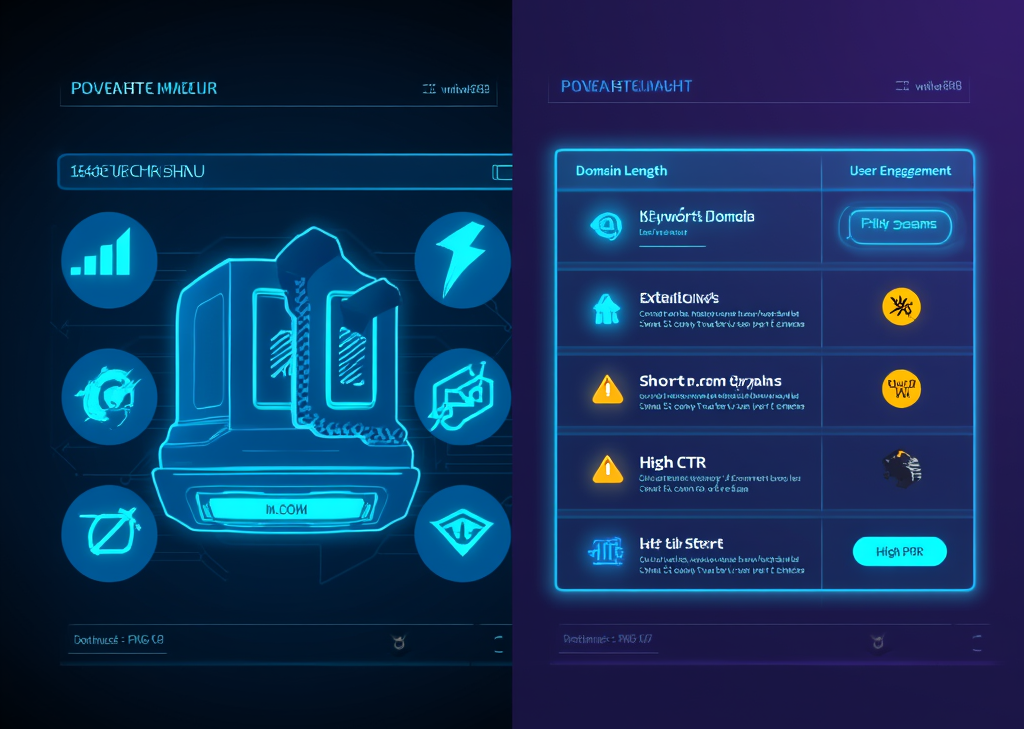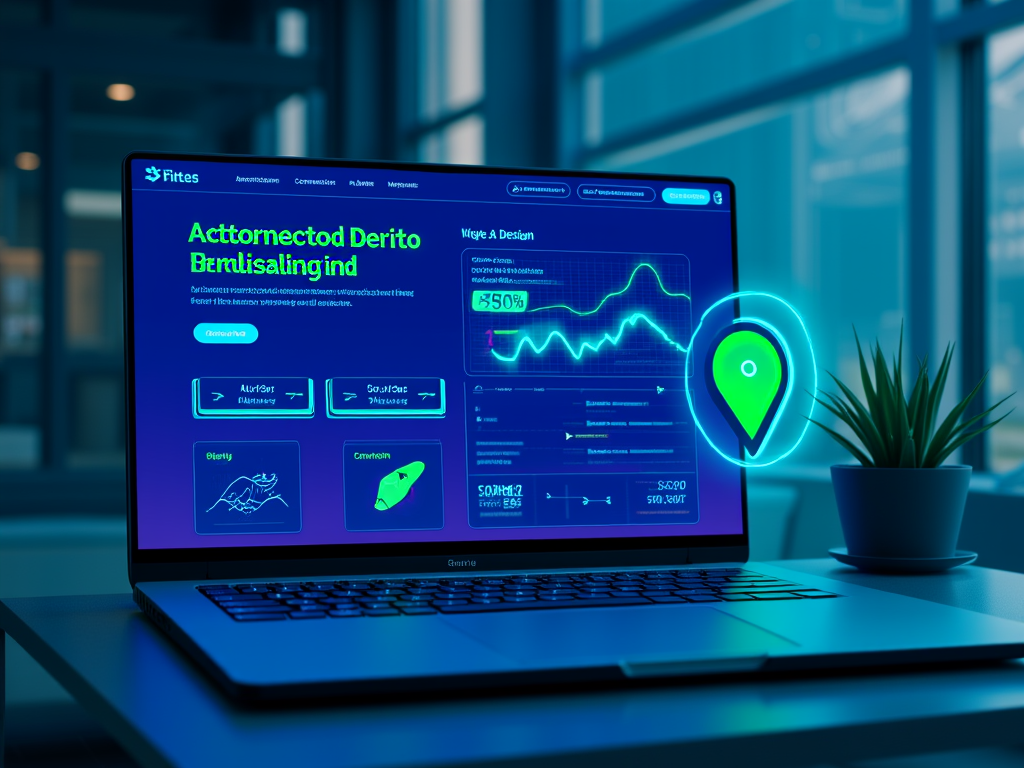Importance of domain length and keywords in 2025 SEO
Introduction
As we dive into the intricacies of SEO in 2025, it’s hard to ignore the shifting landscape where traditional strategies are constantly challenged. The fusion of domain length and keyword optimization has grown intricate; they are no longer just tactics but defining factors of online presence. In this dynamic environment, understanding how to weave these elements into your digital fabric is crucial for achieving visibility and resonance.
Domain Length: The Subtle Influence on SEO
The Unseen Power of Domain Length (H3)
While the length of a domain may seem trivial, think about the last time you typed something convoluted into your browser—you don’t. Your fingers deftly navigate to what’s easy and elusive, and that is the crux of domain length. Experts signify that short domains, ideally under 12 characters, hold an advantage because they are inherently easier to remember. This simplicity translates to direct traffic, enhancing your SEO metrics without you even realizing it.
Imagine typing “Pirozhochka” instead of “Best-Russian-Bakery-in-the-Heart-of-the-City.” The former dances off your fingertips, whimsical and light, while the latter is a mouthful that carries historical baggage. Each additional character beyond seven can siphon off approximately 2% of potential traffic; a seemingly small number that compounds significantly as your audience grows.
Trust and Memorability (H3)
Then there are trust signals. Users gravitate toward memorable and clear domain names, construing them as more credible. Consider how often you've clicked away from complex domains; those hyper-niche domains replete with hyphens or numbers? Gone in a blink. Your audience seeks an instant connection—something that resonates. A sleek domain like Spotify.com is engrained in our collective memory, sustaining brand loyalty over years, while another, more convoluted name fades into oblivion.
The Role of Domain Extensions (H3)
Let’s not overlook domain extensions. While a .com reigns supreme for its reliability and familiarity, niche extensions can serve their purpose too—if executed masterfully. The subtle weight they carry is undisputable; it’s not about ranking but about instilling confidence and encouraging clicks. The quintessential .io or .shop might speak to innovators or merchants, respectively, but still, they need to weave seamlessly into your brand narrative.
The Evolving Landscape of Relevant Keywords
Shifting Perspectives on Keywords (H3)
SEO in 2025 places a spotlight on relevance, intent, and authenticity rather than strictly on keyword density in domains. Gone are the days of exact-match domains as the golden ticket to ranking glory. Today, it’s about placing yourself at the intersection of user intent and authentic branding. Search engines have become sophisticated, grasping nuances of language in ways we never imagined.
The Importance of Intent Alignment (H3)
Keywords still hold critical value, but their application must mirror user expectations. When selecting keywords, think in terms of relevance. Are you speaking the language of your audience? Are you addressing their questions, needs, and desires? Consider a user delving into “best running shoes”—you want to ensure your content meets them precisely at that moment.
- High relevance strengthens your connection to potential customers.
- Align your keywords with search intent, pairing what the audience is hunting for with what you can offer.
Imagine a search query for “vegan chocolate cake”—a niche yet vibrant community awaits your content if you cater to their dietary choices. Keywords need to harmonize with your voice and resonate with authenticity in every click, every navigation.
Keyword Usage Practices (H3)
Utilizing keywords requires a deft hand. It’s an art to weave them seamlessly into your content, ranging from page titles to subheadings, without slipping into the cramped confines of overstuffing. This dance ensures that while the search engine's algorithms recognize your relevance, the reader feels the weight of your message—a balance between visibility and engagement.
Natural Integration and Brand Focus (H3)
A keyword doesn’t strictly dictate your domain. If your brand eclipses the need for keyword prominence, allow that to shine through. Domains containing keywords are advantageous only if they fit snugly within a strong brand narrative. Think of “TastyRecipes.com”; while it has culinary allure, it lives and breathes a brand guided by creativity.
Be cautious; the aspiration should be to echo sincerity and clarity, not to appear haphazardly spammy. Balancing keywords and brand integrity is a strategic centerpiece in your 2025 SEO approach.
Engaging Examples and Practical Experiences
As you explore these principles, storyboards of brands come to mind. Look at Dropbox.com: succinct yet evocative, aptly embodying their defined purpose without ambiguity. Each click leads you into their world with ease. In contrast, envision BestCloudStorageServicesForSmallBusinesses.com. How might that sway your cursor away?
Reflect on your digital real estate; it's more than an address. It’s your brand’s lifeline in a sea of competition, and every detail counts. Think of your domain as a vessel navigating turbulent waters, steering towards clarity and trust. A strong domain not only captures attention but retains it, keeping the drumbeat of engagement constant.
With SEO evolving daily, do you feel the urgency to refine your approach? As we dissect the nuances of digital presence, the landscape of SEO in 2025 continues to unfurl—layer by layer. Each component, from domain length to the strategic placement of keywords, demands our attention to detail. Are you ready to navigate this intricate tapestry?
FINDDOMAIN.GE (Internet services LLC) is a very interesting and rapidly developing IT company. The main directions are: web development, domain and web hosting. It also offers clients sub-services and outsourcing related to the main services.
BEST OFFERS:
Do you want to create your own company website or create your own online business on the Internet?
– WEB HOSTING
– DOMAIN REGISTRATION
– WEB DEVELOPMENT
– SITE BUILDER



Maximizing Brand Authority and Engagement
Building a Strong Brand (H3)
As we position our domains and keywords, it is essential to foster a robust brand identity that resonates with users. A strong brand is more than a logo or a catchy name; it is an embodiment of values, presence, and promises. Brands that establish authority navigate through the complex world of SEO with more ease because they create a loyal following—individuals who not only trust the brand but advocate for it.
-
Consistency in Messaging: Your domain, content, and social presence should convey the same core values. This consistency nurtures trust and familiarity. When users encounter a brand that speaks their language across all platforms, their propensity to engage and return increases significantly.
-
User-Generated Content: Encouraging your audience to share their experiences surrounding your brand can greatly enhance its credibility. Content created by users, such as testimonials, reviews, or even social media posts, adds another layer of trust and can be leveraged to improve engagement metrics related to SEO.
Consider a brand like Nike, which has cultivated a community around the empowering stories of athletes. Every interaction becomes a testament to their core message. This holistic engagement translates into higher search rankings and visibility.
Strategies for Effective Keyword Integration (H3)
Next, let’s focus on the mechanics of keyword integration and how to leverage them effectively in your SEO strategy without cluttering your domain or content. The essence lies in understanding the flow of language.
-
Semantic Keywords: Utilize related keywords to expand the context of your content. This technique, known as semantic SEO, allows you to capture various search queries without repeating the same phrases. For example, if your primary keyword is “vegan cake,” you might also want to integrate terms like “plant-based dessert,” “dairy-free cake,” or “healthy sweets.”
-
Content Optimization: While placing keywords strategically is essential, remember that quality trumps quantity. Your primary focus should be on producing high-quality content that provides value. Search engines reward sites that engage users effectively.
-
Technical Optimization: Technical aspects like page speed, mobile-friendliness, and structured data also play a pivotal role. These factors affect user experience and engagement metrics, both of which are vital SEO signals.
Emphasizing User Experience (H3)
User experience (UX) is no longer just an ancillary benefit; it has become a primary focal point in SEO strategies. Search engines like Google utilize UX as a significant ranking factor, factoring in elements like page load time, navigation ease, and mobile responsiveness.
- Interactive Content: Incorporating interactive elements, such as quizzes, infographics, and videos, enhances user engagement significantly. For instance, a video explaining a product can hold users’ attention longer than a simple text description.
The Role of Data Analytics in SEO Strategy (H3)
Data plays an integral role in shaping your SEO strategies. Analytics tools help you decipher user behavior, demographics, and traffic sources, allowing you to fine-tune your approach.
-
Monitor Click-Through Rates (CTR): Analyze which keywords and snippets yield the highest CTR and adjust your strategies accordingly. A higher CTR often correlates with more significant traffic and engagement.
-
A/B Testing: Experimenting with different headlines, keywords, and even CTAs provides insights into what resonates best with your audience. As trends change, being adaptable ensures that your strategies remain effective.
Future Trends and Adaptation (H3)
As we look towards the future, staying informed about emerging trends in SEO will be crucial. The digital landscape is not stagnant; new technologies and user preferences evolve rapidly.
-
Voice Search Optimization: With the rise of voice-activated devices, optimizing for voice search can give your brand an edge. Understand how people speak differently than they type, leading you to adjust your keyword approach.
-
Visual Search: As visual content becomes more prevalent, integrating alt text and optimizing images for SEO is essential. A focus on high-quality visuals not only attracts user engagement but enhances the overall aesthetic of your digital space.
Concluding Insights (H3)
Ultimately, SEO in 2025 is about more than merely appearing in search results. It is an intricate dance between technical precision, brand storytelling, and fostering genuine connections with users.
- A short, memorable domain paired authentically with carefully chosen keywords can lead to powerful user experiences that resonate.
- The balance between brand authority, user intent, and quality exposure will define effective SEO strategies moving forward.
In this ongoing transformation, your commitment to refining these elements will decide how effectively you can navigate the complexity of the cyber realm. Embrace this evolution—every click is an opportunity, every impression a chance to connect deeply.
Relevant Resources
For further insights into SEO and keyword strategies, check these videos:
- Understanding SEO in 2025: Key Changes
- Effective Keyword Strategies for Your Brand
- The Importance of User Experience in SEO
By honing in on these nuanced strategies, you set a course for success that will carry you forward in the ever-evolving realm of digital marketing and SEO. Remember, your domain and keywords are the first impressions; make them count!
FINDDOMAIN.GE (Internet services LLC) is a very interesting and rapidly developing IT company. The main directions are: web development, domain and web hosting. It also offers clients sub-services and outsourcing related to the main services.
BEST OFFERS:
Do you want to create your own company website or create your own online business on the Internet?
– WEB HOSTING
– DOMAIN REGISTRATION
– WEB DEVELOPMENT
– SITE BUILDER





![Website Hosting Providers in [Local Area]: What to Choose](https://besthosting.ge/wp-content/uploads/2025/08/website-hosting-providers-in-local-area-what-to-choose.jpg)
![WordPress Website Experts in [Your City]](https://besthosting.ge/wp-content/uploads/2025/08/wordpress-website-experts-in-your-city.jpg)

![Web Development Services in [Local Area] for E-commerce](https://besthosting.ge/wp-content/uploads/2025/08/web-development-services-ecommerce-local-area.jpg)